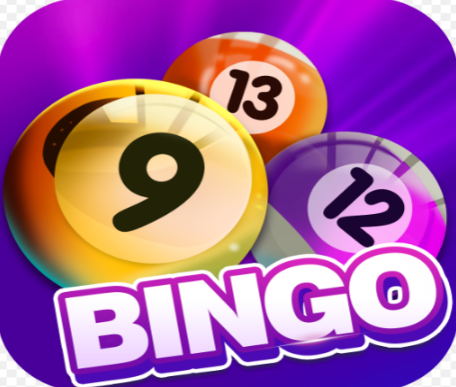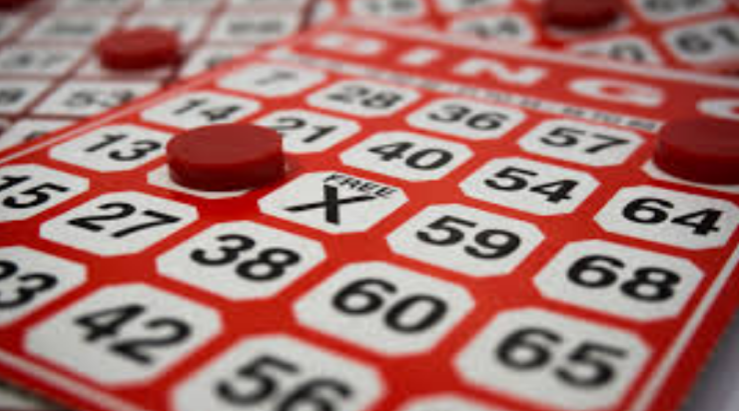Yes, Bingo has gained considerable popularity in Asia due to cultural acceptance, legal adaptations, and technological advancements.
Bingo and Its Origins
Bingo is a game of chance that has grown significantly in popularity around the world. Tracing its origins and spread can provide valuable insights into its current status in Asia.

Where Bingo Started
Bingo’s roots trace back to a lottery game called “Il Gioco del Lotto d’Italia” played in Italy around the 16th century. It quickly gained popularity and spread across borders to France, where it evolved into “Le Lotto,” a game played mainly by the French aristocracy.
- Italian Beginnings: The game’s initial version in Italy was played with a card that featured nine columns and three rows, with four free spaces per row.
- French Evolution: In France, the game evolved, and playing cards were divided into three horizontal and nine vertical rows.
How Bingo Spread Globally
Bingo continued its journey from France to other European countries and eventually crossed the Atlantic to the United States. The game underwent several modifications and adaptations to suit local preferences and regulations.
- Across Europe: Bingo found its way to Germany, where it was used as an educational tool. It spread across Europe, with each country adding its unique twist to the game.
- American Adaptation: The game reached the shores of the United States in the early 20th century, where it was initially called “Beano.” A toy salesman named Edwin S. Lowe observed the game at a country fair in Georgia, renamed it “Bingo,” and created a standardized set of rules and number combinations.
- Global Phenomenon: With the advent of the internet, online Bingo platforms emerged, further fueling the game’s global popularity. It reached different corners of the world, adapting to local cultures and preferences, making it a truly international game.
The Introduction of Bingo in Asia
- Adaptation and Localization: In Asia, Bingo underwent several modifications to fit into the diverse cultures and traditions of the region.
- Online Platforms: The advent of online Bingo played a significant role in popularizing the game in Asia. The convenience of playing from home and the appeal of winning prizes attracted a new generation of players.
- Cultural Reception: The acceptance and popularity of Bingo varied widely across Asia.
This exploration into the origins and spread of Bingo provides a foundational understanding of its presence and variations in the diverse and dynamic continent of Asia.
Popularity of Bingo in Different Asian Countries
The game of Bingo has made a unique impact across various Asian countries, each embracing it differently based on cultural, social, and regulatory landscapes.
Bingo in China
In China, Bingo isn’t as widespread as games like Mahjong, but it has found a niche audience.
- Cultural Adaptation: Bingo in China is often infused with local symbols and themes, adding a cultural flavor that makes the game more relatable to Chinese players.
- Online Platforms: The growth of online gaming in China has opened doors for Bingo, enabling access to a broader audience, particularly the younger generation looking for diverse gaming experiences.
- Regulatory Landscape: The strict gambling laws in China have shaped the way Bingo is played, often limiting it to informal settings and online platforms that comply with local regulations.
Bingo in Japan
Japan has a unique gaming culture, with Pachinko parlors being notably popular. Bingo has entered this vibrant market, and while not as dominant, has found its place among various forms of entertainment.
- Integration with Existing Games: Bingo has been integrated with other popular forms of entertainment, often serving as a side game or an additional feature in gaming arcades.
- Social Gaming Aspect: The social nature of Bingo aligns with the communal gaming culture in Japan, making it an appealing option for group entertainment.

Bingo in the Philippines
In the Philippines, Bingo enjoys considerable popularity, with Bingo halls being a common sight.
- Bingo Halls and Community Gaming: The presence of numerous Bingo halls fosters a strong community gaming culture, with people enjoying the game in a social setting.
- Regulatory Environment: The gaming regulations in the Philippines allow for Bingo to be played widely, contributing to its popularity across the country.
Bingo in India
It is a family-friendly game that combines luck and excitement.
- Cultural Celebrations and Festivals: Bingo is often played during festivals and family gatherings, making it a social activity that brings people together.
- Variations and Local Flavors: Different regions in India have their variations of the game, adding diverse local flavors that make the game more engaging.
Bingo in South Korea
South Korea has a dynamic gaming culture, with a keen interest in both online and offline games.
- Online Gaming Culture: The strong online gaming culture in South Korea provides a platform for Bingo to reach a diverse audience, particularly the younger generation.
- Localized Versions: Adapting Bingo to align with local preferences has been key in introducing the game to South Korean players, offering a unique gaming experience.
Factors Contributing to Bingo’s Popularity in Asia
Various factors contribute to the popularity of Bingo in Asia, ranging from cultural acceptance to the influence of technology. Analyzing these factors provides insight into how and why Bingo has become a recognized game across different Asian countries.
Cultural Acceptance
Cultural acceptance plays a pivotal role in the adoption of any game, and Bingo is no exception. The game’s simple rules and social nature have made it adaptable to different cultures across Asia.
- Sociable Nature: The communal aspect of Bingo aligns well with the social and community-oriented cultures in many Asian countries, fostering interaction and bonding among players.
- Cultural Adaptability: The game’s flexibility allows for incorporation of local symbols, themes, and variations, enhancing relatability and acceptance among diverse populations.
Legal Regulations and Government Policies
The legal landscape significantly impacts the popularity and accessibility of Bingo in different Asian countries.
- Varied Gambling Laws: Asian countries have diverse gambling laws, ranging from strict prohibitions to more liberal regulations, affecting the availability and format of Bingo games.
- Licensing and Regulation: In countries where Bingo is allowed, the presence of licensing and regulatory frameworks ensures fair play and contributes to the game’s credibility and popularity.

Integration with Local Traditions
Integrating Bingo with local traditions has been key to its acceptance in Asia. This fusion creates a unique gaming experience, blending the familiar with the novel.
- Localization of Game Elements: Adapting game elements to reflect local traditions, festivals, and themes has made Bingo more appealing and relevant to Asian players.
- Community Engagement: Integrating Bingo with community events and celebrations fosters engagement and enhances the game’s social aspect, contributing to its popularity.
Technological Advancements and Online Platforms
The advent of technology and the rise of online gaming platforms have significantly contributed to Bingo’s popularity in Asia. These platforms offer convenience and accessibility, attracting a wider audience.
- Online Gaming Growth: The proliferation of online gaming platforms has made Bingo accessible to a larger and more diverse audience, offering various game formats and rewards.
- Technological Innovations: Advances in technology have enabled the development of interactive and immersive Bingo experiences, appealing to tech-savvy players and younger generations.
Comparison with Other Gambling Activities
When assessing the popularity of Bingo in Asia, it is insightful to compare it with other gambling activities such as the lottery, casinos, and sports betting. Each of these has its characteristics, appeal, and place within the diverse Asian gambling landscape.

Bingo vs. Lottery
- Gameplay and Interaction: While Bingo is a social game where players actively engage and mark off numbers on their cards, the lottery involves purchasing tickets and passively waiting for results.
- Rewards and Frequency: Bingo games are frequent, with smaller rewards, fostering a sense of excitement and immediacy.
Bingo vs. Casinos
Casinos offer a variety of games, each with different rules and levels of complexity, setting them apart from the simplicity and accessibility of Bingo.
- Variety and Complexity: Casino games like poker and blackjack involve strategy and skill, appealing to players looking for a challenge. Bingo, with its straightforward rules, attracts a diverse audience seeking casual entertainment.
- Environment and Atmosphere: Casinos are known for their vibrant and glamorous atmosphere, creating a sense of excitement and luxury. Bingo halls, on the other hand, offer a more relaxed and community-oriented environment.
Bingo vs. Sports Betting
Sports betting involves wagering on sports events’ outcomes, contrasting with Bingo’s nature of randomness and community play.
- Knowledge and Strategy: Sports betting requires knowledge of the sports and often involves strategy and analysis, catering to enthusiasts and experts. Bingo appeals to a wide range of players, with its easy-to-understand format and reliance on luck.
- Social Aspect and Engagement: While sports betting is often an individual activity, Bingo emphasizes community and interaction, providing a platform for social engagement and collective excitement.
In conclusion, Bingo holds its unique position in the gambling spectrum, offering a blend of simplicity, sociability, and accessibility.

Social and Economic Impact of Bingo in Asia
Exploring the influence of Bingo in Asia, we find it interwoven into the social and economic fabric of several countries.
Economic Contributions
Bingo’s economic footprint is visible across various sectors, contributing to employment, business growth, and government revenues.
- Employment and Business Opportunities: The presence of Bingo halls and online platforms creates jobs and stimulates business activities, thereby supporting local economies.
- Revenue Generation: The operation of Bingo games generates revenues through ticket sales, online subscriptions, and advertisements, contributing to both the private sector and government coffers through taxes and licensing fees.
- Tourism Boost: In some regions, Bingo attractions add to the tourism industry, drawing enthusiasts and contributing to the overall economic development.
Social Interactions and Communities
Bingo serves as a catalyst for social interactions, strengthening community bonds, and fostering a sense of belonging and togetherness.
- Community Bonding: The communal nature of Bingo brings people together, fostering friendships and reinforcing community ties, especially in areas with Bingo halls and local events.
- Inclusive Entertainment: Bingo’s simplicity and accessibility make it an inclusive form of entertainment, appealing to diverse age groups and demographics, thus promoting social inclusivity.

Potential Issues and Controversies
While Bingo’s impact is largely positive, it is essential to address the potential issues and controversies associated with its practice.
- Gambling Concerns: Like any form of gambling, Bingo can lead to problems such as addiction and financial distress for some individuals, necessitating responsible gaming measures and support services.
- Regulatory Debates: The varying legal landscapes across Asian countries lead to debates and discussions on Bingo’s regulation, especially concerning online platforms and responsible gaming practices.
In conclusion, the impact of Bingo in Asia is multifaceted, contributing to both economic development and social cohesion while navigating the challenges and debates around gambling activities.

